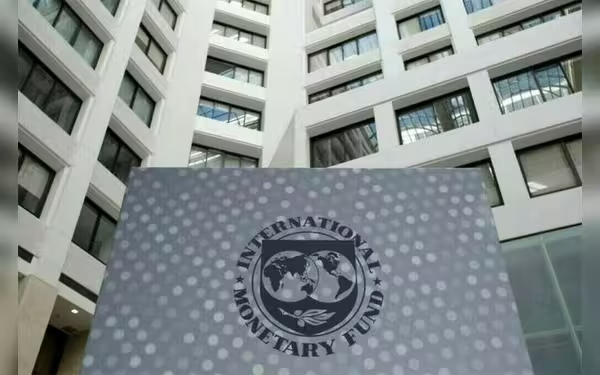Thursday, July 4, 2024 05:49 PM
Government's Fiscal Policies Under Scrutiny Amid IMF Collaboration
- Concerns raised over projected increase in current expenditure and debt servicing
- Lack of specificity on revenue impact of finance bill amendments questioned
- Challenges in ensuring equitable access to essential services amidst privatization plans
 Image Credits: brecorder
Image Credits: brecorderThe Prime Minister's statements on IMF collaboration spark discussions on fiscal direction. Concerns arise over expenditure, debt, revenue impact, privatization challenges, and financial sustainability.
The recent statements by the Prime Minister regarding the collaboration with the International Monetary Fund (IMF) to align the budget with their requirements have sparked discussions on the fiscal direction of the country. While expressing optimism for positive outcomes, concerns have been raised about the projected increase in current expenditure and domestic debt servicing. This could potentially lead to a rise in government borrowing, impacting credit availability to the private sector and fueling inflation.
Furthermore, the Finance Minister's lack of specificity on the revenue impact of each finance bill amendment has raised questions about the budget's effectiveness. The focus on revenue generation rather than expenditure cuts may necessitate revisions to ensure a balanced approach. Ongoing reforms in sectors like pensions and power generation have also come under scrutiny for their long-term implications.
The government's emphasis on privatizing distribution companies without addressing tariff differential subsidies presents challenges in ensuring equitable access to essential services. Additionally, plans to enforce registration under the Tajir Dost Scheme and block SIMs of non-filers may encounter obstacles related to compliance and potential corruption.
Reforms in state-owned entities (SOEs) and privatization initiatives need thorough evaluation to guarantee operational efficiency and financial sustainability. The government's ability to control expenditure is crucial for maintaining credibility with lenders, a factor that requires further attention in the current budgetary framework.
As the government navigates through the complexities of budgetary planning and economic reforms, it is essential to address the identified concerns and prioritize sustainable financial practices. Transparency, accountability, and strategic decision-making will be key in ensuring the effective implementation of policies that benefit the economy and the citizens in the long run.













